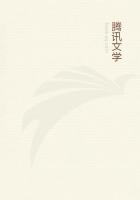8. Number measures all measureables. This further is observable in number, that it is that which the mind makes use of in measuring all things that by us are measurable, which principally are expansion and duration; and our idea of infinity, even when applied to those, seems to be nothing but the infinity of number. For what else are our ideas of Eternity and Immensity, but the repeated additions of certain ideas of imagined parts of duration and expansion, with the infinity of number; in which we can come to no end of addition? For such an inexhaustible stock, number (of all other our ideas) most clearly furnishes us with, as is obvious to every one. For let a man collect into one sum as great a number as he pleases, this multitude, how great soever, lessens not one jot the power of adding to it, or brings him any nearer the end of the inexhaustible stock of number; where still there remains as much to be added, as if none were taken out. And this endless addition or addibility (if any one like the word better) of numbers, so apparent to the mind, is that, I think, which gives us the clearest and most distinct idea of infinity: of which more in the following chapter.
Chapter XVII
Of Infinity 1. Infinity, in its original intention, attributed to space, duration, and number. He that would know what kind of idea it is to which we give the name of infinity, cannot do it better than by considering to what infinity is by the mind more immediately attributed; and then how the mind comes to frame it.
Finite and infinite seem to me to be looked upon by the mind as the modes of quantity, and to be attributed primarily in their first designation only to those things which have parts, and are capable of increase or diminution by the addition or subtraction of any the least part: and such are the ideas of space, duration, and number, which we have considered in the foregoing chapters. It is true, that we cannot but be assured, that the great God, of whom and from whom are all things, is incomprehensibly infinite: but yet, when we apply to that first and supreme Being our idea of infinite, in our weak and narrow thoughts, we do it primarily in respect to his duration and ubiquity; and, I think, more figuratively to his power, wisdom, and goodness, and other attributes, which are properly inexhaustible and incomprehensible, &c. For, when we call them infinite, we have no other idea of this infinity but what carries with it some reflection on, and imitation of, that number or extent of the acts or objects of God's power, wisdom, and goodness, which can never be supposed so great, or so many, which these attributes will not always surmount and exceed, let us multiply them in our thoughts as far as we can, with all the infinity of endless number. I do not pretend to say how these attributes are in God, who is infinitely beyond the reach of our narrow capacities: they do, without doubt, contain in them all possible perfection: but this, I say, is our way of conceiving them, and these our ideas of their infinity.
2. The idea of finite easily got. Finite then, and infinite, being by the mind looked on as modifications of expansion and duration, the next thing to be considered, is,- How the mind comes by them. As for the idea of finite, there is no great difficulty. The obvious portions of extension that affect our senses, carry with them into the mind the idea of finite: and the ordinary periods of succession, whereby we measure time and duration, as hours, days, and years, are bounded lengths. The difficulty is, how we come by those boundless ideas of eternity and immensity; since the objects we converse with come so much short of any approach or proportion to that largeness.
3. How we come by the idea of infinity. Every one that has any idea of any stated lengths of space, as a foot, finds that he can repeat that idea; and joining it to the former, make the idea of two feet; and by the addition of a third, three feet; and so on, without ever coming to an end of his additions, whether of the same idea of a foot, or, if he pleases, of doubling it, or any other idea he has of any length, as a mile, or diameter of the earth, or of the orbis magnus: for whichever of these he takes, and how often soever he doubles, or any otherwise multiplies it, he finds, that, after he has continued his doubling in his thoughts, and enlarged his idea as much as he pleases, he has no more reason to stop, nor is one jot nearer the end of such addition, than he was at first setting out: the power of enlarging his idea of space by further additions remaining still the same, he hence takes the idea of infinite space.

